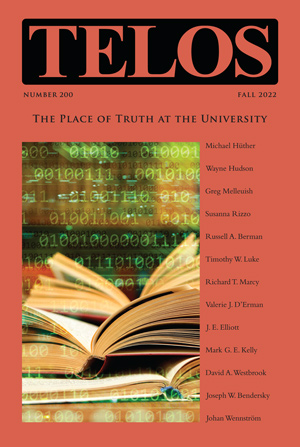 As the teaching assistant strike at the University of California extends into its fifth week, it seems that education has increasingly merged with activism. In fact, J. E. Elliott argues in our podcast interview that the development of the humanities in particular has moved so far in this direction that activism has become the explicit focus and attraction of majoring in the humanities for college students. As he lays out, such activist-oriented education is not a form of resistance but a result of the corporatization of the university, which involves not just links between corporations and universities but also the way in which college education has developed into a mass market commodity. The expansion of higher education, in promoting the admission of larger proportions of the population into college, has diluted the elite character of the college degree, making it into a more purely professional qualification and forcing colleges to devote more effort into justifying the value of their degrees for the job market. Because the ideals of inclusion and of merit are inherently contradictory, integrating more students into college has devalued the degree credential and therefore colleges must design their programs with an eye toward different segments of the higher education market. Consequently, the humanities at U.S. universities have evolved to establish “Brand English” to compete with “Brand STEM” and “Brand Business” by promoting social activism as its main distinguishing characteristic.
As the teaching assistant strike at the University of California extends into its fifth week, it seems that education has increasingly merged with activism. In fact, J. E. Elliott argues in our podcast interview that the development of the humanities in particular has moved so far in this direction that activism has become the explicit focus and attraction of majoring in the humanities for college students. As he lays out, such activist-oriented education is not a form of resistance but a result of the corporatization of the university, which involves not just links between corporations and universities but also the way in which college education has developed into a mass market commodity. The expansion of higher education, in promoting the admission of larger proportions of the population into college, has diluted the elite character of the college degree, making it into a more purely professional qualification and forcing colleges to devote more effort into justifying the value of their degrees for the job market. Because the ideals of inclusion and of merit are inherently contradictory, integrating more students into college has devalued the degree credential and therefore colleges must design their programs with an eye toward different segments of the higher education market. Consequently, the humanities at U.S. universities have evolved to establish “Brand English” to compete with “Brand STEM” and “Brand Business” by promoting social activism as its main distinguishing characteristic.
Without the traditional literary and intellectual canons, the focus of humanities education has shifted toward promoting diversity, equity, and inclusion, which have become in many respects code words for identity politics, socialist-inspired redistribution, and college for all as entry into the job market. But because these three policies are partisan positions that have been enshrined as overarching truths (or in Elliott’s terms, “truth-posits”) for higher education, college humanities have to a large extent abandoned genuine debate about the origins and consequences of different ideas in favor of activist promotion of such ideas. The strike itself foregrounds the focus on equity without, however, considering the consequences of such a policy.







